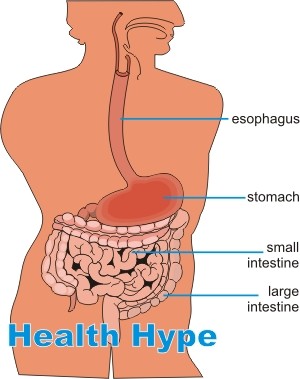Obstructive Constipation (Obstipation)
The normal pattern for bowel movements varies among individuals. For some it is a daily occurrence, and often even several times in the day. For others it is less frequent and possibly not even daily. Normally bowel movements occur at least 3 or more times a week. Ideally it should occur at least once daily but if more than 200g or 200ml of stool is passed in 3 or more movements in a day then it is labeled as diarrhea. Conversely, passing stool less than 3 times a week is labeled as constipation. However, it is not just a matter of the number of bowel movements in a week with constipation – the stool is usually hard and dry and there is significant discomfort and straining during the bowel movement.
Constipation is not a disease, it is a symptom. Most cases of constipation occur for no known reason, is not associated with any underlying disease and responds well to dietary changes. These cases are known as simple constipation. When constipation arises due to some underlying disease or contributing factor, it can resolve once the disease is treated and properly managed. A minority of cases are termed as severe idiopathic constipation where bowel movements are very infrequent yet there is no clearly evident underlying cause. It is most likely functional in nature, possibly associated with reduces motor activity of the bowels and excessive contraction of the anal sphincter muscles. When stool or gas is not passed out, however, this is referred to as obstipation.
What is obstipation?
Obstipation is defined as the failure to pass stool or gas as a result of an intestinal obstruction. The term is commonly used in number of settings that may be confusing. Obstipation may be a progression of severe constipation. It may actually be caused by an accumulation and hardening of the stool due to infrequent bowel movements (constipation). The feces is then said to be impacted (fecal impaction) and this is the cause of the intestinal obstruction.
However, it may suddenly occur without a previous history of constipation usually when associated with trauma or a foreign body. Although obstipation is defined as the failure to pass stool or gas, this may not always be the case. Some patients may pass very little stool while other may have diarrhea, as only the watery feces can move past the obstruction and exit the rectum.
With all these factors to consider, obstipation should rather be defined as changes in bowel movement, usually constipation, associated with an intestinal obstruction. Since all obstructions within the small and large intestine cause at least some degree of constipation, it is fair to say that obstipation is synonymous with a significant intestinal obstruction.
Causes of Obstipation
The small and large intestines are the longest part of the alimentary tract. Most obstructions tend to arise at these sites. Causes of a complete obstruction are uncommon. However, an accumulation of food, water and even swallowed air, can ‘plug’ up any remaining space at the site of the obstruction. In this regard, a very large partial obstruction will quickly progress to a complete obstruction without medical care.
The causes of intestinal obstruction, and therefore obstipation, are discussed in greater details under :
- Blocked bowel – small intestine
- Blocked colon – large intestine
An obstruction higher up in the alimentary tract, like within pylorus of the stomach or esophagus, presents with regurgitation and difficulty swallowing rather than significant changes in the bowel movement.
Some of these causes includes :
- Adhesion – scarring associated with surgery
- Colorectal cancer
- Fecal impaction
- Foreign body
- Gallstones – gallstone ileus
- Hernias – femoral and inguinal
- Intestinal polyps (usually in adenomatous colonic polyps)
- Intussusception – telescoping of the bowels
- Volvulus – twisted bowels
Signs and Symptoms of Obstipation
The clinical features may be misleading at the outset. Obstruction is unlikely to be identified immediately without further diagnostic investigation. Obstipation presents as :
- Abdominal distension.
- Bloating – sensation of fullness.
- Nausea and vomiting.
- Abdominal pain.
- Fever.
- Constipation and/or diarrhea – blood may be present.
- Loss of appetite.
- Tachycardia – increased heart rate.
- Increases bowel sounds (borborygmi) which may later progress to diminished sounds.





